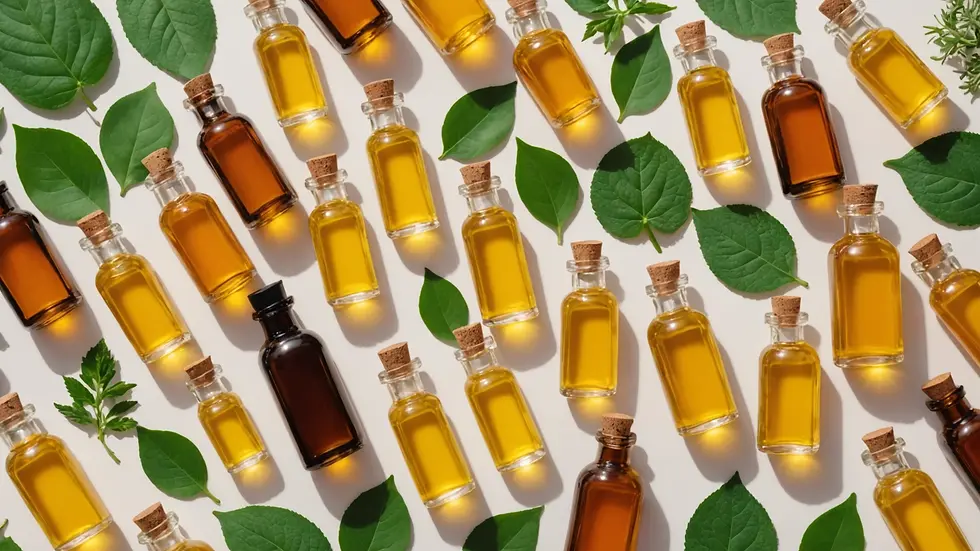Uncovering the Untold Magic: The Mystique of Botanical Ingredients in Hair Care
- Dec 13, 2024
- 3 min read
When we talk about hair care, the products we often think of are laden with chemicals meant to transform the texture, shine, and health of our tresses. However, an unprecedented shift has emerged in this industry, drawing attention toward the beauty of botanical ingredients. The harmonious relationship between nature and hair care products is rooted in a history that spans centuries, showcasing the mystique and efficacy of plants when it comes to nurturing our hair.
This blog post delves into the enchanting benefits of botanical ingredients, the science behind them, and how they can elevate your hair care routine.
The History and Significance of Botanicals in Hair Care
Botanical ingredients have been utilized for thousands of years across various cultures — from ancient Egypt's use of herbs and oils to India’s cherished tradition of Ayurveda. These natural wonders were revered not just for their physical benefits but also for their spiritual properties.
Utilizing botanical ingredients in hair care signifies a return to nature’s wisdom. With growing awareness about the adverse effects of synthetic chemicals, consumers are increasingly favoring organic products not only for their effectiveness but also for their safety.

Why Choose Botanical Ingredients?
The allure of botanical ingredients lies in their multifaceted benefits. Here’s why incorporating them into your hair care routine can work wonders for you:
Natural Healing: Many plants carry inherent healing properties. Ingredients like aloe vera soothe the scalp, while tea tree oil can alleviate dandruff issues.
Nourishment and Hydration: Oils derived from botanicals like jojoba and argan deeply nourish the hair, ensuring moisture retention and a healthy shine. They penetrate the hair shaft, repairing dryness from within.
Rich in Antioxidants: Botanical ingredients are often packed with vitamins and minerals that combat free radicals. Ingredients such as green tea extract show promise in protecting hair from environmental damage.
Improved Scalp Health: A healthy scalp is foundational for healthy hair growth. Ingredients like rosemary not only stimulate circulation but may also promote growth while keeping unwanted microbial activity at bay.
Gentleness on Skin: Unlike many conventional hair care products, botanicals are often gentler on both the hair and scalp, making them ideal for individuals with sensitivities or allergies.

Key Botanical Ingredients to Look For
With a myriad of options available, it’s crucial to identify which botanical ingredients suit your hair type and needs. Here’s a closer look at some popular options:
Aloe Vera: Known for its hydrating and soothing qualities, aloe vera is a fantastic component for dry or irritated scalps and helps to reduce frizz.
Coconut Oil: Renowned for its deep conditioning properties, coconut oil penetrates the hair shaft effectively, making it a go-to for repairing damaged hair.
Hibiscus: Rich in amino acids and antioxidants, hibiscus can help enhance shine, reduce hair fall, and promote stronger strands.
Lavender Oil: Beyond its lovely fragrance, lavender oil can improve scalp circulation and provide antimicrobial benefits, addressing issues such as itchiness.
Neem Leaf: Commonly used in traditional medicine, neem has potent anti-fungal properties that can tackle dandruff and promote a healthier scalp.
How to Integrate Botanical Ingredients into Your Routine
With an understanding of the benefits and available ingredients, it’s time to integrate them into your hair care regime. Here are practical tips to get started:
Choose Products Wisely: Look for shampoos, conditioners, and treatments that prioritize natural and organic botanical ingredients over synthetic additives.
DIY Hair Masks: Consider creating your own hair masks with botanical ingredients. For example, a simple mask of mashed avocado and aloe vera can work wonders for moisture.
Scalp Treatments: Infuse oils like rosemary or tea tree into your scalp routine. Regular massage with these oils can rejuvenate hair follicles and enhance growth.
Stay Consistent: Nature-based solutions often take time to show results. Be patient and consistent in your approach, giving botanical ingredients a fair chance to work their magic.

Conclusion
The charm of botanical ingredients in hair care lies in their timeless effectiveness and the nurturing essence they bring from nature. As the beauty industry continues to evolve, embracing these natural elements not only offers profound benefits for our hair but also fosters a more sustainable and health-conscious approach to beauty care. By selecting products and practices that integrate botanical wisdom, we can all continue to uncover the untold magic hidden within the plants around us.
Consider this a gentle nudge to explore the world of botanical hair care. Your locks will thank you!





Comments